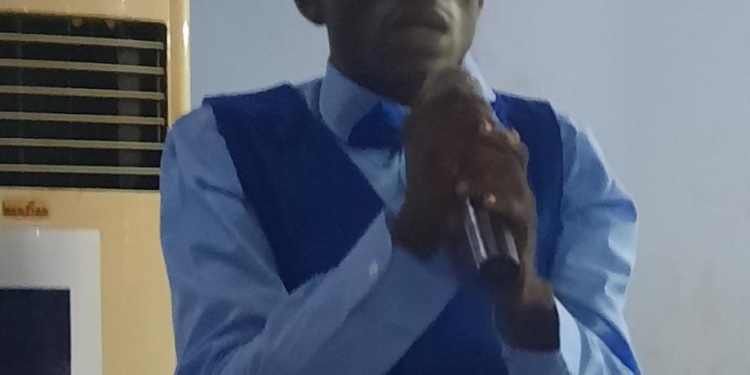LionHeart Ability Foundation, a Disabled Peoples’ Organization, has called for improved access to education for persons with Daef-Blindness and joint efforts from relevant stakeholders to end the scourge of Usher Syndrome which is one of the major causes of Deaf-Blindness.
Mr. Solomon Okelola, Executive Director, LionHeart Ability Leaders Foundation called for support from Health practitioners, Educationists, Parents and Government to play their roles in addressing the challenges that people with Usher Syndrome face in the society.
Mr. Okelola made the call while speaking at a roundtable seminar on Usher Syndrome/Deaf-Blindness organized by LionHeart with support from Disability Rights Funds.
Mr. Okelola who said there is ability in disability stressed that Persons with disabilities can contribute meaningfully to the development of the society.
He however explained that the education sector needs to be equipped to enable it provide for the needs of persons with Deaf-Blindness so they are not left behind in the society.
“Eyes and ears are the main sense organs and losing both could be quite challenging, if the teachers are not aware about the existence of this group of people, they won’t be able to cater for their academc needs,” he explained.
Mr. Okelola also buttressed that, “Individual with Deaf-Blindness can study whatever they wish to study in school but the facilities must be available to cater for their accessibility needs.”
Okelola also explained that the organization is aimed at “building a diverse allied movement to ensure the academic, health and social inclusion of individuals with Usher Syndrome/Deaf-Blindness in Lagos State.”
Speaking on ‘Usher Syndrome: The Silent Scourge’, Dr. Esther Oyefeso, Lecturer, Department of Special Education, University of Ibadan, said Usher Syndrome affects vision, hearing and balance of every child. She added that it has a rate in Africa and Nigeria but many people are not aware of it.
She urged parents of children with Usher Syndrome to seek early intervention as it could help the child to live a normal life, stressing that it doesn’t have any treatment but can be managed.
On his part, Dr. Rasheed Abilu, Director, National Research Center for Disabled, Federal College of Education (Special), Oyo explained that there is need to provide special units or schools for learners with Deaf-Blindness.
He buttressed that there is need for census to provide government with adequate data that can enable them establish specific schools for students with Deaf-Blindness.
Dr. Abilu who said inclusive education would have been the best option explained noted that it’s only few states in Nigeria that are practicing inclusive education.
“I am not preaching segregation but when we talk about inclusive education, how many states have vibrant inclusive education systems?
“So, we need to be sincere to ourselves and provide the needed support so that these people are not left behind,” he added.
Dr. Abilu also called for the full implementation of the Discrimination against Persons with Disabilities Prohibition Act, which according to him would address some of the barriers being faced by person with Deaf-Blindness.
Abdulazeez Balogun, Aeronautic engineer believes that disability is not the problem of a PWD but some barriers which have made their disability more pronounced.
“Let’s begin to see PWDs as people who have dreams, goals and visions like every other person in the society and we can be able to tap their potentials for National progress and transformation,” he added.

